COLUMBIA UNIVERSITY PRESS
Publishers Since 1893
New York Chichester, West Sussex
cup.columbia.edu
Copyright 2015 Columbia University Press
All rights reserved
E-ISBN 978-0-231-53881-7
Library of Congress Cataloging-in-Publication Data
Hodge, David R.
Spiritual assessment in social work and mental health practice / David R. Hodge.
pages cm
Includes bibliographical references and index.
ISBN 978-0-231-16396-5 (cloth : alk. paper) ISBN 978-0-231-53881-7 (e-book)
1. Spiritual care (Medical care). 2. Social serviceReligious aspects. 3. Mental health counselingReligious aspects. I. Title.
BL65.M4H626 2015
361.3dc23
2014018942
A Columbia University Press E-book.
CUP would be pleased to hear about your reading experience with this e-book at .
Cover design: Rebecca Lown
Cover image: Shutterstock
References to websites (URLs) were accurate at the time of writing. Neither the author nor Columbia University Press is responsible for URLs that may have expired or changed since the manuscript was prepared.
TO OUR CLIENTS AND THE PRACTITIONERS WHO HELP THEM REALIZE THEIR STRENGTHS AND ACHIEVE THEIR GOALS
IT IS INCREASINGLY RECOGNIZED THAT spirituality plays an important role in service provision. For many clients, spirituality is intrinsically connected with health and wellness. To optimize services for such clients, it is necessary to take spirituality into account during service provision (Koenig, 2013).
This recognition has resulted in healthcare professionals seeking to address spirituality in practice settings, a process that begins with the administration of a spiritual assessment. Spiritual assessment can be defined as the process of gathering, analyzing, and synthesizing information about spirituality into a multidimensional framework that provides the basis for future clinical decisions (Hodge, 2013a). Understood in this sense, assessment provides the foundation for all subsequent practice interactions.
The resulting information may be used to assist clients in overcoming obstacles, preventing relapse, and promoting well-being. Interventions designed to enhance coping, ameliorate problems, and aid recovery flow from the data obtained during assessment. Barriers that inhibit effective service delivery can be removed, and assets that facilitate successful outcomes can be operationalized.
How information obtained from a spiritual assessment is used in a specific clinical context varies from case to case, depending on factors such as the practice setting, the practitioners theoretical orientation, and the clients interests and needs (Canda & Furman, 2010). For example, adapting services for clients from vulnerable populations, for whom spirituality is often particularly important, can play an instrumental role in achieving positive outcomes. Although applications vary, it is the assessment that provides the necessary information to optimize the services delivered. Put differently, the failure to administer a spiritual assessment can impair clinical effectiveness and, in some cases, exacerbate problems.
Different types of spiritual assessments exist (Holloway & Moss, 2010; Draper, 2012). Broadly speaking, these different methods can be classified into two categories: qualitative and quantitative. Although quantitative assessments can be productively employed in many practice settings, they are characterized by significant limitations, particularly when used with subjective constructs such as spirituality. These shortcomings limit their validity but do not preclude their use, as will be discussed in further detail in .
To obtain clinically valid information, spiritual assessment is best conducted with qualitative assessment approaches (Narayanasamy, 2010). These approaches tend to be individualistic, ideographic, holistic, open-ended, and process oriented (Hodge, 2001a). As such, they are particularly appropriate for exploring clients spiritual reality. The depth, quality, and richness of information that these approaches tend to produce effectively position practitioners to optimize service provision in an ethical manner that is consistent with disciplinary norms. Consistent with this understanding, a qualitative frame is assumed throughout most of this book.
A TRANSDISCIPLINARY APPROACH
Contemporary work on the topic of spiritual assessment can be traced back at least as far as Pruyser (1976), a clinical psychologist at the Menninger Clinic. Seminal scholarship on spiritual assessment has also been conducted in fields other than psychology, including nursing (Stoll, 1979), pastoral care (Fitchett, 1993), and social work (Bullis, 1996). More recently, work on this and related topics has appeared across the helping professions.
Previous scholarship, however, has been criticized for its disciplinary focus (Fitchett, 2012; Praglin, 2004; Ross & McSherry, 2010). These commentators have noted that much of the extant scholarship has tended to be conducted in distinct professional silos. To advance the field, these writers suggest a more cross-disciplinary approach.
In keeping with these recommendations, this book incorporates content from a wide variety of fields. It draws heavily from the social work literature, but this literature is integrated with scholarship from other disciplines to help clarify and disseminate best practices in the assessment of spirituality in a wide variety of practice settings.
As a result, practitioners from a number of disciplines may benefit from the book. Helping professionals who may find the text useful include social workers, marriage and family therapists, counselors, and psychologists. Nurses, chaplains, and physicians who are working in hospitals and other healthcare settings that require spiritual assessments might also benefit. Other professionals who might profit include those who work in areas where spirituality is often a salient dimension of practice, such as addictions, gerontology, and hospice.
In line with this transdisciplinary approach, the word practitioner is typically used as a proxy for helping professionals more generally. This term is commonly used in social work but also has applicability in other fields. Likewise, the philosophical perspectives that inform the text are also transdisciplinary in nature.


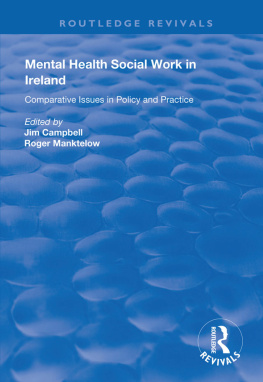
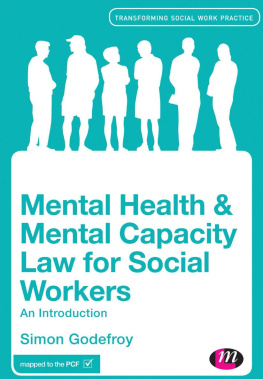
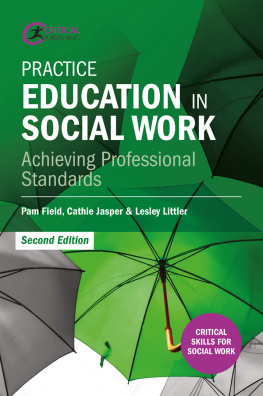
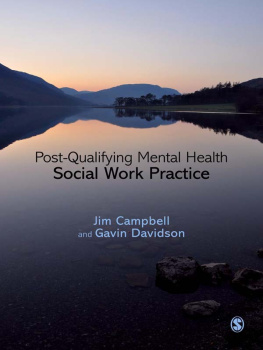
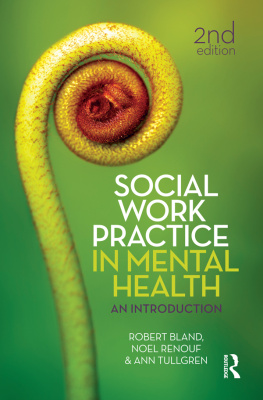
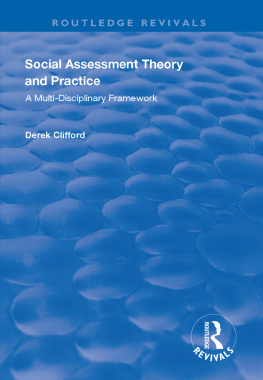

 COLUMBIA UNIVERSITY PRESS NEW YORK
COLUMBIA UNIVERSITY PRESS NEW YORK
